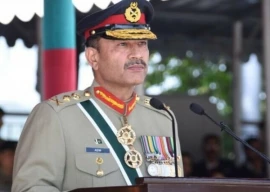Media in Pakistan, like other professions, continues to be overwhelmingly male dominated. For a number of reasons — mostly cultural — educated girls are not allowed by their families to work alongside men. In fact, cultural taboos discourage middle and lower middle class families from sending their girls to co-education institutions. So, despite the fact that girls have been excelling — compared with their male counterparts — in academic competence since long, their presence in workplaces has continued to remain almost negligible, mostly because of a culturally-induced, self-imposed prohibition by their families. On the other hand, those who challenge these taboos and choose to work alongside men because they feel it to be their bounden duty to use the knowledge and skills they have acquired for the betterment of society, or those who are compelled by their economic circumstances to go out into what is a man’s world and seek jobs in male-dominated workplaces, find the environment extremely hostile because of the cultural view of women who go ‘public’ as opposed to those who remain ‘private’— under the protection of the four walls of their house. Discrimination against those who dare to take on all such problems starts from the day they join a workplace. They are rarely given ‘responsible’ assignments or made in charge of male members of the office. Even when they attain equal footing with their male colleagues, they are paid less than the latter. How they dress and how they carry themselves become a part of office gossip. And of course, in this male-dominated environment, it is almost impossible to exclude the possibility of some of them suffering sexual harassment.
The ratio of male/female population in Pakistan is almost 50/50. The male-dominated hostile environment flowing out of our outmoded cultural norms has so far kept most of the 50 per cent of our population out of our societal endeavours in the fields of economy, politics and social development. This has led to many shortfalls and gaps between what is needed by the entire population and what is being delivered. This needs to be changed. And this change can be brought about only if the male members of society were to stop being guided by obscure and unnatural cultural taboos. The media can contribute immensely by taking the initiative and drawing up a policy of overall non-discrimination and strictly implementing it. This gathering of the 110 female media persons was arranged by the Pakistan chapter of the South Asian Women in Media (SAWM) at the hill station of Bhurban near Islamabad last week to discuss “Media, Gender, Obscenity and Terrorism”. The conference urged the gathering to play a dynamic role to highlight gender issues, raise voice for women’s rights within the media, prevent stereotyping of women’s issues and to stop treating women negatively in the media as well as their exploitation in the name of obscenity.
Published in The Express Tribune, October 24th, 2012.
COMMENTS (4)
Comments are moderated and generally will be posted if they are on-topic and not abusive.
For more information, please see our Comments FAQ
1736942026-0/fizza-(33)1736942026-0-405x300.webp)

1736941045-0/fizza-(32)1736941045-0-165x106.webp)
1736940015-0/BeFunky-collage-(53)1736940015-0-165x106.webp)







1732012115-0/Untitled-design-(14)1732012115-0-270x192.webp)
1736844405-0/Express-Tribune-(2)1736844405-0-270x192.webp)






Given the reportedly growing horruption (read corruption) in media it is time to bring in more women of character into the mainstream media to stem the rot.
"this change can be brought about only if the male members of society were to stop being guided by obscure and unnatural cultural taboos. " how true................
What was the purpose of having the gathering at Bhurban?If they had too much money it could have been utilised for having training
workshops or an awareness raising campaign.
Women are admirable persons. They are daughters, sisters, wives, mothers, lovers and revolutionaries. For Taliban and their patrons, these are beings on two legs which can be parted.